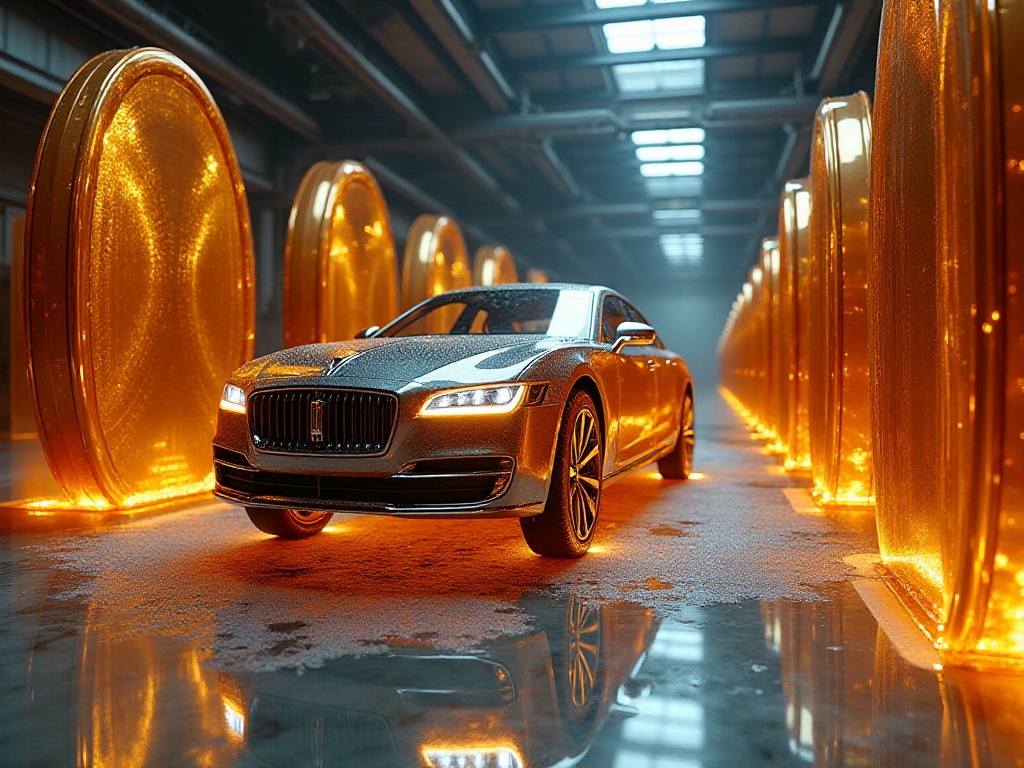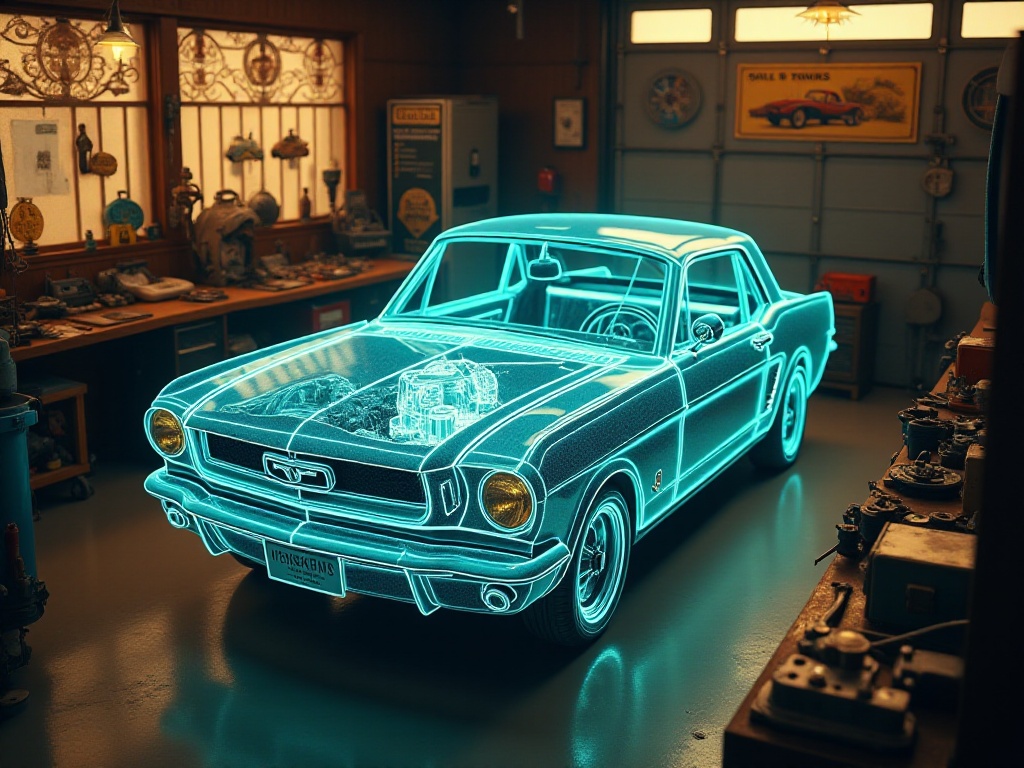Introduction
Fellow drivers, today let's talk about a super practical topic - car maintenance. As someone who has been driving for over a decade, I totally understand: maintaining a car is like raising a child, requiring lots of patience and attention to detail. To be honest, I bet some of you have experienced this: you're driving along when suddenly there's a "clinking" sound, or a red light mysteriously appears on your dashboard. When you get to the dealership for a check, the manager smiles and tells you: this is what happens when regular maintenance is neglected - small problems become big troubles, and repair costs soar.
Basic Inspections
Let's talk about basic car maintenance. I've developed a method of "look, smell, listen, and touch" that I guarantee you can learn in three minutes.
First, let's talk about "looking." Before each drive, take a minute to walk around your car, paying special attention to the tires. Uneven tire wear, scratched or deformed rims are all warning signs. Here's a simple tip: insert a one-dollar coin into the tire tread - if the characters "One Dollar" are completely visible, it's time to replace the tires. This is no joke - tires are your car's "shoes," and serious wear can lead to major problems.
Another technique is checking the paint. Young people today love their cars, but many don't know how to assess paint condition. It's actually simple: find a sunny spot, crouch down, and look at the car body from the side. If you spot small scratches or dents, they need to be addressed promptly. Letting these minor damages turn into rust spots can cause major headaches.
Next, let's discuss "smelling." Every time you open the hood, use your nose. If there's a burning smell in the engine compartment, it might be a belt problem; if you smell gasoline, be careful of possible fuel line leaks. I remember once detecting a sweet smell, checked immediately, and found coolant leaking. If not discovered early, the engine could have been ruined.
As for "listening," this is interesting. Pay attention to your car's "language" during every drive. Is the engine running as smoothly as usual? Are there any unusual noises while driving? Does the steering wheel feel particularly heavy? These are all ways your car "talks" to you - you need to learn to understand its meaning. I had a friend who ignored the "squeaking" sound from his brakes, and ended up with completely worn brake pads, nearly causing an accident.
Finally, let's talk about "touching" - hands-on inspection. First is engine oil, which is crucial. Many newcomers don't know how to check oil, but it's very simple: after parking, wait 5 minutes for the oil to drain back to the pan, then pull out the dipstick, wipe it clean, reinsert it to measure - this gives an accurate reading. Oil level should be between the upper and lower marks - too much or too little is problematic.
Transmission fluid also needs regular checking. Automatic transmission fluid should be changed every 50,000 kilometers, while manual transmission fluid can go a bit longer. Don't believe transmission fluid is "lifetime fluid" - that's a complete misconception. I've seen several cases where transmissions failed due to not changing the fluid.
Coolant is especially important in winter. Many people think adding tap water to the radiator is sufficient - this is a big mistake. Coolant doesn't just prevent freezing; it also prevents rust and corrosion. Always use proper brand coolant and follow the instructions for concentration.
Brake fluid is often overlooked. If brake fluid deteriorates or is low, braking performance will be affected. Check the brake fluid color - if it's dark or black, it needs changing. Generally, brake fluid should be changed every two years - this investment is really worth it.

Practical Tips
Next, I'll share some practical tips I've summarized - guaranteed to make you say "that's professional."
First, let's talk about interior storage. I particularly hate a messy car, so I've thought of many solutions. Last week, I bought a cereal box at the supermarket and transformed it into a perfect vehicle document storage box. Vehicle registration, insurance documents, inspection records - all these important documents are neatly stored inside, easily accessible when needed.
Back seat storage is also important, especially for those who frequently travel with children or go on road trips. I installed a bathroom organizer in the back seat - it's absolutely fantastic. It's perfect for storing tissues, wet wipes, charging cables, and keeps everything organized when traveling.
Another storage tip is installing velcro on both sides of the trunk and attaching storage bags. This keeps items like fire extinguishers, warning signs, and spare tools from rolling around in the trunk.
Speaking of storage, I also recommend a fantastic item: door kick mats. These not only prevent children from dirtying the doors but also have storage pockets on the back for commonly used items like parking cards and tissues - very practical.

Cleaning and Maintenance
In terms of cleaning and maintenance, I have quite a few secret techniques to share with everyone.
Let's start with the recently popular method of cleaning headlights with toothpaste. I tried it last week, and the results were really great. Headlights become oxidized and yellowed after exposure to sun and rain. Using regular white toothpaste to gently scrub uses its mild abrasives to remove the oxidation layer, making headlights bright again.
How to do it? First, rinse the headlights clean with water, then squeeze out some white toothpaste (remember, don't use whitening toothpaste with particles), use a soft cloth with toothpaste to gently scrub in circles for about 3-5 minutes, then rinse clean with water. The effect is immediate and won't damage the headlights.
Interior cleaning also has its techniques. Many people like to use wet wipes on seats and steering wheels, but this isn't good. It's recommended to buy specialized interior cleaner, spray it on a cloth then wipe - this cleans while protecting interior materials. Especially for leather seats, apply leather conditioner after cleaning to extend the seat's lifespan.
Air conditioning system cleaning is also important. Many people notice odd smells from their AC - this is due to dust and bacteria accumulation in the system. It's recommended to do a deep clean of the AC system every spring before using it. You can buy AC cleaner and follow the instructions, or get a professional cleaning service at the dealership.
I have a special method for cleaning wheels: using lemon water. The acidity of lemon water can dissolve iron powder and brake dust on wheels. Spray lemon water on the wheels, wait a few minutes, then gently scrub with a soft brush and rinse clean with water. This makes the wheels especially bright.

Garage Storage
Garage storage is a science. I recently discovered a particularly useful trick: using pool noodles to protect car doors. Cut the noodles to appropriate lengths and attach them to the garage walls - this prevents door damage when opening. I've been using this method for almost a year with great results, and it's very cost-effective.
Parking positioning also has techniques. I hung a tennis ball from the garage ceiling - when parking, just position the car so the hood touches the ball, and the position is perfect. This method is simple and practical - no more worrying about incorrect parking position.
Tool storage in the garage is also important. I installed a pegboard on the wall where all tools are hung, making everything organized and easily accessible. You can also draw tool outlines on the wall, so you know exactly where to return them after use.
Speaking of tools, I recommend preparing a basic toolbox. It should include wrenches, screwdrivers, pliers, and spare fuses and bulbs. Sometimes you can fix minor car problems yourself without going to a repair shop.

Conclusion
Maintaining your car isn't difficult - the key is developing good habits. Just like we brush our teeth and wash our face daily, giving our car a "check-up" should become a habit. Regular checks and timely maintenance not only save repair costs but also keep your car in optimal condition to accompany us for longer journeys.
If you have any unique car maintenance tips, feel free to share them in the comments. Let's exchange ideas, learn from each other, and improve together. Remember, details determine success, and these tips learned today might save you a significant amount in repair costs. Let's work together to be responsible car owners and keep our beloved cars shining bright.


